
Dates
16-18 December 2010
Place
Brighton, United Kingdom
INTERNATIONAL ENVIRONMENT FORUM
14th ANNUAL CONFERENCE
integrated into the ESDinds Conference
MAKING THE INVISIBLE VISIBLE: AN EMERGING
COMMUNITY OF PRACTICE IN INDICATORS, SUSTAINABILITY AND VALUES
CONFERENCE PROGRAMME, BIOS AND ABSTRACTS
Thursday 16 December
Formal Opening
Professor Andrew Lloyd, Dean, University of Brighton
Overview of Conference Themes and Context
Marie Harder, Co-ordinator of EU FP7 ESDinds Project, University of Brighton
Plenary Session 1: Developing an Overview
Indicators and the Need for Values
Bedrich Moldan, Charles University Environment Center, Prague
DESD we can? Learning our way out of Unsustainability in the Decade of Education for Sustainable Development (DESD)
Arjen Wals, UNESCO Chair, University of Wageningen, The Netherlands
Values. Why do successful businesses consider them a competitive advantage?
Daniel Truran, Director General, European Baha'i Business Forum
The Earth Charter: Meeting a Need for a Universal Values/Ethics Framework
Jeffrey Newman, Earth Charter Initiative
Panel Discussion & Questions led by Arthur Dahl, University of Brighton (Ex-Deputy Director, UNEP)
Planary Session 2: Recent Developments
Values as the basis for action in the International Federation of Red Cross and Red Crescent Societies: the Youth as Agents of Behavioural Change Initiative
Katrien Beeckman, Head, Principles & Values Department, IFRC, Geneva
A New Framework of Values-based indicators & the 'We Value' toolkit
Marie Harder, Co-ordinator of EU FP7 ESDinds Project, University of Brighton
TSIPANI ECHERI: The Presence of Values in Environmental Education Through the Arts
Cardiela Amezcua-Luna, Echeri Consultores
Discussion and questions from this session
The 14th Annual General Assembly of the International Environment Forum was held over the lunch break.
SPECIALIST SESSIONS
1.Values Systems
Windows on the World: Views from Minessence Jackie Le Fèvre
IFRC YABC Initiative Katrien Beeckman
Measuring Values in Education – a scheme in 58 schools in Ireland Molly O’Duffy
Social Values in Climate Change Communication Julie Doyle
Life Enriching Values Gwen Clifford
2. Indicators for SD and ESD
Environmental Indicators Bedrich Moldan
ESD Indicators Arjen Wals
How ‘WeValue’ relates to other SDIs Tomas Hak
The Quadruple Bottom Line - lessons from social enterprise Jim McLaughlin
The Sustainable Self: a personal approach to education for sustainability Paul Murray
3.Unmeasured things we value: sharing examples
Discussions and informal presentations led by Jeffrey Newman
NGOs in Rural Dev Ahmet Akyurek
Reconnecting British people back with Nature through OPAL Maxwell Ayamba
MOWGLI Mentoring Scheme in Syria Bernadette Devine (EC Young Leaders Baptista)
Partnerships in PERL David Chittenden
4.`WeValue’ & EC-Access Taster Session
Interactive workshop: using ‘We Value’ system for exploring and measuring values, and Earth Charter’s EC-Access system
Public Professorial Inaugural Lecture
Introduction: Stuart Laing, Deputy Vice-Chancellor, University of Brighton
Life: A Systems Approach - Reflections on multiple dimensions of sustainability
Professor Arthur Dahl, University of Brighton (Ex-Dep Dir UNEP)
Friday 17 December
Welcome Back
Marie Harder, Co-ordinator of EU FP7 ESDinds project, University of Brighton
Plenary Session 3: Challenges and Progress in Using Values
New Developments in Understanding Values
Martin Kirk, OXFAM
The ‘Good Governance for Medicines’ Programme
Guitelle Baghdadi-Sabeti, World Health Organisation
Values in Education and Design
Karen Blincoe, Director Schumacher College 2006-9; President of Danish Designers
Measurement: why values can soon be imbedded everywhere
Professor Arthur Dahl, University of Brighton (Ex-Dep Dir UNEP)
Panel Discussion & Questions led by Marie Harder, University of Brighton
Sub-Plenary Session 1
Building Values-Driven Organizations, Communities and Nations Richard Barrett, Barrett Values Centre
Healthy University-CSO Partnerships David Wolff, Community University Partnership Programme, University of Brighton
The role of values in achieving a more sustainable development David Chittenden, PERL - Partnership for Education and Research about Responsible Living
The Impacts of using Values-Based Indicators in projects worldwide Alicia Jimenez, Earth Charter international
Sub-Plenary Session 2
Faith based communities and their engagement with the environment through long term plans John Smith, Alliance for Religion and Conservation
European Union FP7 Opportunities for CSO Involvement in Research Marie Harder
The role of moral leadership in transformation for sustainability Sylvia Karlsson-Vinkhuysen, and Onno Vinkhuysen, International Environment Forum
The Growing Importance of CSO Partnerships: Lessons from CREPE Project Les Levidow, Open University
SPECIALIST SESSIONS
5.Monitoring & Evaluation
Validity Checks of WeValue Martin Zhradnik
The Youth Monitoring and Assessment Hub David Woollcomb
Measuring Social Impact Simon Northmore
Assessing Empowerment Andrew Bartlett
6.Values Systems in Business
AtKisson Inc: COMPASS Michael Lunn
'WeValue' in Business Serge Thill
Values Technology Sara Wolcott, IDS
Minessence System: Organisational Change Jackie Le Fèvre
7.Co-Inception Co-Design, Co-Production
Design for Social Learning: Transformative Learning Jody Boehnert
Co-Design in Action Nick Gant
The Need for Better Design of CSO Projects with Research Partners Marie Harder
8.Partnerships
Healthy University-CSO Partnerships David Wolff
Partnerships in WeValue Gemma Burford
Experiences of partnerships in Global Action Plan International Marilyn Mehlmann
How Project Quality links to Values John Smith
9a.'WeValue' Taster Session
Interactive session exploring and measuring values
People's Theater, Germany
Youth Theatre Performance
An interactive performance from one of the CSO partners for the EU FP7 ESDinds project, working with schools in Germany
Saturday 18 December
Welcome Back
PANEL SESSION: CHALLENGES AND PROGRESS IN USING VALUES
Beyond GDP Economics and the need for Measuring Values
Sara Wolcott, IDS - Institute of Development Studies
Intelligent Commissioning and links to Big Society
Paula Black, Brighton & Hove City Council
'Effective' versus 'Successful' CSO Projects
Marilyn Mehlmann, Global Action Plan International International
Policy Initiatives, Values and Indicators
David Chittenden, PERL - Partnership for Education and Research about Responsible Living
The Future of the Global Economy
Augusto Lopez-Claros, EFD Global Consulting Network
Panel discussion: Identifying New Communities of Practice: Specific Ways Forward
CLOSING COMMENTS
LIST OF ABSTRACTS AND SPEAKER BIOGRAPHIES
THURSDAY 16 DECEMBER
9.50 – 11.00: Scene-Setting Panel Session - Developing an Overview
Indicators and the Need for Values
Professor Bedrich Moldan
Why is sustainable development desirable? The conventional wisdom maintains that sustainable development means a development of human society and individual human beings that is sustainable socially, economically and environmentally. We try to figure out what the three pillars consist of, find appropriate indicators, etc. However, we should also ask not only what does it mean, but also why it should be so, i.e. questions about the desirability of sustainable development.

Professor Bedrich Moldan is a Senator in the Parliament of the Czech Republic, and the Director of Charles University Environment Center, Prague (CUEC), a partner in the ESDinds Project to develop values-based indicators for sustainable development. He is Chairman of the Committee for Strategy of the Czech National Sustainable Development Council, and was named as an ‘Ambassador for the Environment’ by the German Foreign Relations Society in 2007. He also chaired the UN Commission of Sustainable Development from 2000-2001 and the Scientific Committee of the European Environment Agency from 2002-2006, and was a coordinating lead author of `Millennium Ecosystem Assessment’.
DESD we can? Learning our way out of unsustainability
Professor Arjen Wals
The UN Decade of Education for Sustainability gives a central role to education and learning in transitioning to more sustainable lifestyles, communities, organisations, businesses and systems. As we have crossed, somewhat silently, the mid-way point of this Decade, it is time to ask the question whether we are beginning to make a dent in the tsunami of unsustainability that is rolling over the Planet. Is ESD able to turn the tide, and how would we know?
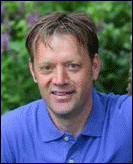 Professor Arjen Wals is a Professor of Social Learning and Sustainable Development at Wageningen University in the Netherlands, a UNESCO Chair in the same field, and a co-founder and past president of the NGO `Caretakers of the Environment International’. His research focuses on learning processes that contribute to a more sustainable world, and he was responsible for the midterm review of UNESCO's Decade of Education for Sustainable Development. He has (co)published and (co) edited over 150 articles, chapters and books, and is the author of two popular books, `Higher Education and the Challenge of Sustainability’ (Kluwer Academic, 2004) and `Social Learning towards a Sustainable World’ (Wageningen Academic, 2007).
Professor Arjen Wals is a Professor of Social Learning and Sustainable Development at Wageningen University in the Netherlands, a UNESCO Chair in the same field, and a co-founder and past president of the NGO `Caretakers of the Environment International’. His research focuses on learning processes that contribute to a more sustainable world, and he was responsible for the midterm review of UNESCO's Decade of Education for Sustainable Development. He has (co)published and (co) edited over 150 articles, chapters and books, and is the author of two popular books, `Higher Education and the Challenge of Sustainability’ (Kluwer Academic, 2004) and `Social Learning towards a Sustainable World’ (Wageningen Academic, 2007).
Values: why do successful businesses consider them a competitive advantage?
Daniel Truran
In what mood do you walk into your office on Monday? What is your level of motivation as you sit at your desk, and how much of your complete self - talents, personality and skills - are you willing to dedicate to your company's objectives? In this short presentation we offer you some examples whereby the nurturing of employees' values and their alignment with both the company and society's values brings about the most motivated and committed staff. This results not only in the retention of your best talent, but also having each one of your human resources totally committed to making your company successful.
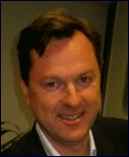 Daniel Truran was formerly Logistics and Marketing Director at Exel PLC and winner of the Exel “Worldwide Innovation Award of the Year”, and has now created a new career: linking individuals and creating innovative solutions in the field of ethical behaviour, responsible entrepreneurship and values. Daniel is currently Director General of the European Baha’i Business Forum, and Visiting Professor and Tutor on Social Entrepreneurship at Instituto Empresa and at the EOI Business School. He is a Director of Via3, a member of the Boards of Trustees of both Spirit in Business and the Association for Spirit at Work, Vice-President of Humanica Social Ventures, and a consultant on ethical communication for the European Ethical Team of Lush.
Daniel Truran was formerly Logistics and Marketing Director at Exel PLC and winner of the Exel “Worldwide Innovation Award of the Year”, and has now created a new career: linking individuals and creating innovative solutions in the field of ethical behaviour, responsible entrepreneurship and values. Daniel is currently Director General of the European Baha’i Business Forum, and Visiting Professor and Tutor on Social Entrepreneurship at Instituto Empresa and at the EOI Business School. He is a Director of Via3, a member of the Boards of Trustees of both Spirit in Business and the Association for Spirit at Work, Vice-President of Humanica Social Ventures, and a consultant on ethical communication for the European Ethical Team of Lush.
The Earth Charter: Meeting a Need for a Universal Values/Ethics Framework
Rabbi Jeffrey Newman
In 1987, The World Commission on Environment and Development (known as "the Brundtland Commission") launched its Our Common Future report with a call for a “new charter” to set “new norms” to guide the transition to sustainable development. Following that, discussion about an Earth Charter took place in the process leading to the Earth Summit in Rio de Janeiro in 1992, and the Earth Charter was formally launched in the year 2000. It is a declaration of fundamental ethical principles for building a just, sustainable and peaceful global society in the 21st century. It seeks to inspire in all people a new sense of global interdependence and shared responsibility for the well-being of the whole human family, the greater community of life, and future generations. This is critical because of the lack of attention paid to values, or ethics generally, in many global processes currently being developed.
Rabbi Jeffrey Newman is Director of Earth Charter United Kingdom.
11.30 – 13:00: Second Plenary Session – Values and Values-Based Indicators
A New Framework of Values-Based Indicators and the ‘We Value’ Toolkit
Professor Marie Harder
This conference marks the culmination of the ESDinds Project (a two-year research project funded by the European Union’s Seventh Framework Programme). The basis of the project is that ethical values can be measured, when locally defined, by using a combination of indicators based on perceptions and observable outputs. An important output is the newly developed set of WE VALUE indicators, which allow civil society organisations and businesses to measure the intangible things that are important to them. This process enables them to crystallize their vision and goals, as they develop specific indicators and measurement methods. It can also assist them to achieve new relationships with funders: building a shared vocabulary around values helps both sides to appreciate each other.
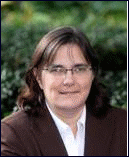 Professor Marie Harder is Professor of Sustainable Waste Management at the University of Brighton, and the Coordinator of the EU FP7 Research project on ESD Indicators entitled, “The Development of Indicators & Assessment Tools for CSO Projects Promoting Values-based Education for Sustainable Development.” She has considerable experience in applied research in waste and recycling, including boundaries across the physical and social sciences, working with businesses, government agencies, civil society and NGOs, leading the Waste & Energy Research Group (WERG). This broad sustainable development approach has resulted in her work addressing issues in co-design, communities of practice, indicator design, community engagement in waste issues, as well as physical sciences.
Professor Marie Harder is Professor of Sustainable Waste Management at the University of Brighton, and the Coordinator of the EU FP7 Research project on ESD Indicators entitled, “The Development of Indicators & Assessment Tools for CSO Projects Promoting Values-based Education for Sustainable Development.” She has considerable experience in applied research in waste and recycling, including boundaries across the physical and social sciences, working with businesses, government agencies, civil society and NGOs, leading the Waste & Energy Research Group (WERG). This broad sustainable development approach has resulted in her work addressing issues in co-design, communities of practice, indicator design, community engagement in waste issues, as well as physical sciences.
Project Evaluation and Transformation with Values-Based Indicators: the Echeri Project with Indigenous Children in Rural Mexico
Cardiela Amézcua Luna
Echeri Consultores is a non-profit organisation based in Michoacan, Mexico that promotes environmental conservation through values education and the arts. It is affiliated with the Earth Charter Initiative (ECI), a founding partner of the ESDinds Project Consortium. In this presentation, I will describe Echeri’s experiences with WE VALUE indicators in a participatory evaluation of two separate reforestation projects working with indigenous children and youth. The indicators provided specific, detailed information about the impact of the projects, and the participatory process resulted in transformation of the smaller youth group at a deep level.
 Cardiela Amézcua Luna is Founder and President of the Mexican non-governmental organization Echeri Consultores, which is affiliated with the Earth Charter Initiative (ECI) and has been selected by ECI as a `model project’ for the purpose of regional reports. She has spent more than a decade developing innovative methodologies for arts-based programmes that generate an emotional connection to the wider community of life, and empower young people to engage in practical activities such as reforestation. She was actively involved in the organization of the Michoacan Arts Festival Live, and participated in a Consultative Group on Conservation of Biodiversity in the Lake Patzcuaro area, organized by the Darwin Initiative.
Cardiela Amézcua Luna is Founder and President of the Mexican non-governmental organization Echeri Consultores, which is affiliated with the Earth Charter Initiative (ECI) and has been selected by ECI as a `model project’ for the purpose of regional reports. She has spent more than a decade developing innovative methodologies for arts-based programmes that generate an emotional connection to the wider community of life, and empower young people to engage in practical activities such as reforestation. She was actively involved in the organization of the Michoacan Arts Festival Live, and participated in a Consultative Group on Conservation of Biodiversity in the Lake Patzcuaro area, organized by the Darwin Initiative.
Values as the basis for action in the International Federation of Red Cross and Red Crescent Societies: the Youth as Agents of Behavioural Change (YABC) Initiative
Dr Katrien Beeckman
The Red Cross Red Crescent Movement, composed of 186 National Societies, the International Committee of the Red Cross and the International Federation of the Red Cross and Red Crescent Societies, is guided by 7 Fundamental Principles. These 7 Principles - (Humanity, Impartiality, Neutrality, Independence, Voluntary Service, Unity and Universality are underpinned by universal humanitarian values, such as respect for diversity and human dignity. This ethical framework constitutes the raison d’être of the Red Cross Red Crescent Movement and determines its action and modus operandi. The Principles and Values Department has recently set up the YABC or ‘Youth as Agents of Behaviour Change’ initiative, which empowers youth to become ethical leaders in their community promoting non-discrimination, non-violence and social inclusion.
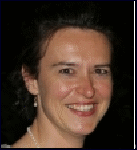 Dr Katrien Beeckman is the Head of the International Federation of Red Cross and Red Crescent Societies’ Principles and Values Department. She is the founder of the IFRC initiative “Youth as Agents of Behavioural Change”. Before joining the International Federation of Red Cross and Red Crescent Societies 5 years ago, she worked in education for UNESCO in Africa, in academia (researcher and lecturer at the Universities of Geneva and Marmara in Istanbul) and as a consultant with the United Nations High Commissioner for Human Rights, the Committee on the Rights of the Child and the Centre for Housing Rights and Evictions.
Dr Katrien Beeckman is the Head of the International Federation of Red Cross and Red Crescent Societies’ Principles and Values Department. She is the founder of the IFRC initiative “Youth as Agents of Behavioural Change”. Before joining the International Federation of Red Cross and Red Crescent Societies 5 years ago, she worked in education for UNESCO in Africa, in academia (researcher and lecturer at the Universities of Geneva and Marmara in Istanbul) and as a consultant with the United Nations High Commissioner for Human Rights, the Committee on the Rights of the Child and the Centre for Housing Rights and Evictions.
SPECIALIST SESSION 1: VALUES SYSTEMS
Windows on the World: Views from Minessence
Jackie Le Fèvre
Academic opinion appears to be relatively settled upon the inter-related nature of values, and that values tend to sit in hierarchies and can rise or fall in priority in relation to external circumstances. Over the last twenty years the Minessence Values Framework (MVF) has been used with individuals, groups and organisations around the world. This framework clusters values into eight themes and describes seven distinct views upon the world. The current data set for the MVF contains over 17,000 individuals. In this session we will take a look at the structure of the framework itself and explore some of the insights into gender- and occupation-specific preferences that have emerged to date.

Jackie Le Fèvre is a Founder and Director of Magma Effect™ Limited, a limited company that is the sole UK licensor of the AVI values profiling tool and offers a wide range of individual and organisational development activities. Just as the magma from volcanoes can bring deeply buried diamonds to the surface, Magma Effect™ aims to connect with the values hidden deep inside people and surface them to a level from which people can define, refine and shine these very personal drivers of meaning and motivation. Jackie is a co-founder of the Minessence Group, an international network of values consultants. Her first book, `Braver Than You Think... Female Perspectives on Courage’, was published by Tangent Books in 2008.
The IFRC’s YABC (Youth as Agents of Behavioural Change) Initiative
Dr Katrien Beeckman
YABC (Youth as Agents of Behaviour Change) empowers youth to become leaders of behavioural change in society and in their local community. It does so by equipping them with concrete and practical skills, such as non-violent communication or active listening. YABC starts with each youth member making the commitment to change from within. Through internal arts, youth gain inner peace and harmony before reaching out to their peers and the community. The final purpose for YABC youth is to raise the awareness of society on non-discrimination, gender equality, violence prevention and building a culture of peace, social inclusion and intercultural dialogue and to engage in concrete action, which can take the form of humanitarian diplomacy with authorities, carrying out social projects, organizing campaigns, etc.
Bio and photograph above.
Measuring Values in Education – a scheme in 58 schools in Ireland
Molly O’Duffy
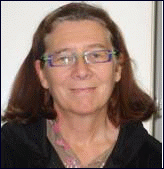 Educate Together is the Patron Body for 58 multi-denominational state-funded primary schools in the Republic of Ireland. The ethos of Educate Together schools is predicated on the following core principles: multi-denominational, co-educational, child-centred and democratically run. The schools deliver an ethical education programme, which includes Moral and Spiritual Education, Environment and Ethics, Belief Systems, and Equality and Justice. In keeping with these principles, Educate Together promotes an ethos of respect for the identity, individuality and integrity of all members of the school community, and is devising a tool to help schools measure and evaluate their adherence to the values and principles of the ethos. This presentation will describe this tool and outline the experience to date in supporting schools to use it.
Educate Together is the Patron Body for 58 multi-denominational state-funded primary schools in the Republic of Ireland. The ethos of Educate Together schools is predicated on the following core principles: multi-denominational, co-educational, child-centred and democratically run. The schools deliver an ethical education programme, which includes Moral and Spiritual Education, Environment and Ethics, Belief Systems, and Equality and Justice. In keeping with these principles, Educate Together promotes an ethos of respect for the identity, individuality and integrity of all members of the school community, and is devising a tool to help schools measure and evaluate their adherence to the values and principles of the ethos. This presentation will describe this tool and outline the experience to date in supporting schools to use it.
Molly O’Duffy is Ethos Development Officer with Educate Together. She is a primary teacher, and has worked as a teacher trainer in Nicaragua and as a disability and community development trainer in Ireland.
The Communication of Social Values
Dr Julie Doyle
The mainstream environmental movement has called for a transformation of its own approaches to climate change communication and action, through an acknowledgement that climate change can no longer be simply framed as an environmental issue. As such, a broader coalition of groups and networks, from social justice to faith organisations, are now addressing this issue. Through an analysis of recent climate change communication campaigns by Cafod, Friends of the Earth and the Camp for Climate Action, this paper explores how different social values are communicated by each campaign. Attentive to the power relations invested in their organisational structures, the paper considers how different values shape how climate change is made meaningful and the kinds of action advocated.
 Dr Julie Doyle is a Principal Lecturer in Media Studies in the School of Arts and Media at the University of Brighton, with specialisms in visual culture, environmental communication, and the gendered mediations of science, technology and medicine. Her forthcoming book 'Mediating Climate Change' explores the difficulties in communicating climate change and making it meaningful. Julie is also involved in a Leverhulme Trust funded Artist-in-Residence project with the artist David Harradine, which explores how a creative dialogue between art and media studies can lead to new visualisations of climate change. She is co-founder and joint vice-chair of the Science and Environment Communication Section of the European Communication and Research Education Association.
Dr Julie Doyle is a Principal Lecturer in Media Studies in the School of Arts and Media at the University of Brighton, with specialisms in visual culture, environmental communication, and the gendered mediations of science, technology and medicine. Her forthcoming book 'Mediating Climate Change' explores the difficulties in communicating climate change and making it meaningful. Julie is also involved in a Leverhulme Trust funded Artist-in-Residence project with the artist David Harradine, which explores how a creative dialogue between art and media studies can lead to new visualisations of climate change. She is co-founder and joint vice-chair of the Science and Environment Communication Section of the European Communication and Research Education Association.
Life-Enriching Values
Gwen Clifford
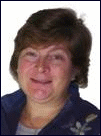 Since 1995, the Human Values Foundation has been providing highly acclaimed and effective, non-denominational holistic education programmes for thousands of primary and secondary age pupils both here in the UK and worldwide. Our programmes help our young people explore, develop and practice human values starting with a simple framework of core values including Love, Truth, Peace, Right Conduct and Non-violence. We are now engaging with 21st century technologies to embed and sustain ‘Life-enriching values for everyone, both young and old’. There is a long journey ahead but we know that there are many more organizations and partners out there who share the same vision and aims. Perhaps it is time to work more closely together?
Since 1995, the Human Values Foundation has been providing highly acclaimed and effective, non-denominational holistic education programmes for thousands of primary and secondary age pupils both here in the UK and worldwide. Our programmes help our young people explore, develop and practice human values starting with a simple framework of core values including Love, Truth, Peace, Right Conduct and Non-violence. We are now engaging with 21st century technologies to embed and sustain ‘Life-enriching values for everyone, both young and old’. There is a long journey ahead but we know that there are many more organizations and partners out there who share the same vision and aims. Perhaps it is time to work more closely together?
Gwen Clifford is a former Headteacher with 25 years experience in primary, special and inclusive education. She is now the E-Values Project Manager for the Human Values Foundation, an exciting project that seeks to bring and sustain ‘Life-enriching values for everyone’ through the use of new technologies. She is also engaged in further post graduate study with the Helen Arkell Centre for Dyslexia, based in Surrey.
SPECIALIST SESSION 2: INDICATORS FOR SUSTAINABLE DEVELOPMENT AND ESD
Environmental Indicators
Professor Bedrich Moldan
A deeper exploration of environmental indicators in common use in different contexts.
See bio and photograph above.
Education for Sustainable Development (ESD) Indicators
Professor Arjen Wals
A deeper exploration of indicators in the context of Education for Sustainable Development, and specifically the UNESCO Decade of Education for Sustainable Development.
See bio and photograph above.
Positioning of WE VALUE indicators in relation to conventional indicators of sustainable development
Dr Tomas Hák
In this presentation I will discuss well-known indicators of well-being and sustainable development, together with their underlying methodologies, and compare them with the newly developed WE VALUE indicators that constitute a major output of the EU-funded ESDinds Project. Do the value-based indicators developed and tested within ESDinds differ somewhat from conventional sustainable development indicators? If yes, can they supplement and enrich one another?
 Dr Tomas Hák is Deputy Director of the Charles University Environment Center, Prague (a partner in the ESDinds Project to develop values-based indicators). He has extensive experience with environmental project management; spent two years at the Czech Ministry of Environment evaluating projects applying for foreign financial support; and has worked as a project leader at the Regional Environmental Center in Budapest. He has worked at the Charles University Environment Center since 1997, where he has participated in research funded by the UN Development Programme that resulted in a draft National Sustainable Development Strategy, and led a research group dealing with environmental sustainability indicators. He is a member of the Environmental Committee of the Czech Academy of Sciences.
Dr Tomas Hák is Deputy Director of the Charles University Environment Center, Prague (a partner in the ESDinds Project to develop values-based indicators). He has extensive experience with environmental project management; spent two years at the Czech Ministry of Environment evaluating projects applying for foreign financial support; and has worked as a project leader at the Regional Environmental Center in Budapest. He has worked at the Charles University Environment Center since 1997, where he has participated in research funded by the UN Development Programme that resulted in a draft National Sustainable Development Strategy, and led a research group dealing with environmental sustainability indicators. He is a member of the Environmental Committee of the Czech Academy of Sciences.
The Quadruple Bottom Line (4BL) and holistic perspectives on sustainability – lessons from the social enterprise sector regarding values, strategies & social impact measurement
Dr Jim McLoughlin
This paper presents a holistic impact measurement methodology suitable for all organizations interested in measuring sustainability and developing strategic management capabilities. It advocates a quadruple bottom line (4BL) impact framework including social, environmental, financial and economic dimensions, which is incorporated into the holistic SIMPLE (Social Impact for Local Economies) impact measurement model. The model co-developed by the Brighton Business School’s CUBIST research group and Social Enterprise London was initially designed to provide the conceptual and methodological underpinnings of a training programme for social enterprises, and has subsequently been used to embed impact systems in social enterprise organisations. The SIMPLE impact model offers a 5 step approach to impact measurement called Scope it; Map it; Track it; Tell it and Embed it. The paper will also explore how micro-level organisational impact reporting should be linked to macro-level societal sustainable measures of performance - effectively a total systems approach - and, in addition, how the social enterprise sector can be an important component in transforming society to a more sustainable future. Some future challenges for social impact measurement will be examined.
 Dr Jim McLoughlin is Principal Lecturer in the Brighton Business School, and Head of the Cultural Business – Impact, Strategy and Technology Management (CUBIST) Research and Consultancy Group at the University of Brighton. The group adopts a holistic multidisciplinary approach to addressing management problems in the Cultural and Heritage sector, and offers specialist research and consultancy on strategic planning, socio-economic impact studies, technology strategy, project management and impact evaluation, partnership-building and policy in the cultural and heritage sector. The group belongs to a larger EPOCH research network - an 89-partner EU funded project focused on Cultural Heritage and Technology, managed and administered at the University of Brighton.
Dr Jim McLoughlin is Principal Lecturer in the Brighton Business School, and Head of the Cultural Business – Impact, Strategy and Technology Management (CUBIST) Research and Consultancy Group at the University of Brighton. The group adopts a holistic multidisciplinary approach to addressing management problems in the Cultural and Heritage sector, and offers specialist research and consultancy on strategic planning, socio-economic impact studies, technology strategy, project management and impact evaluation, partnership-building and policy in the cultural and heritage sector. The group belongs to a larger EPOCH research network - an 89-partner EU funded project focused on Cultural Heritage and Technology, managed and administered at the University of Brighton.
The Sustainable Self: a personal approach to education for sustainability
Dr Paul Murray
 If we do not feel engaged with a problem, we are unlikely to act to resolve it. Yet, for many professions, education for sustainability focuses solely on equipping individuals with the technical knowledge and skills they need to deliver 'sustainable' solutions without engaging them at a personal level with the concept of sustainability and the issues that underlie it. With this in mind, values-centred training techniques were developed at the University of Plymouth to help translate sustainability from an abstract and distant idea into something real, meaningful and personally important. The process seeks to pump-prime the cultivation of six key attributes, which are: awareness of the problems and our personal role in their resolution, a deep motivation to live and work more sustainably, a sense of personal empowerment to act, a baseline understanding of the core themes underlying sustainability, the cultivation of skilful means and engaging in pro-sustainability practices, personally and professionally. Underlying the training programme is the conviction that what is needed is not so much a change in values, but a recognition and mobilization of our deepest core values attitudes, which invariably align extremely closely with sustainability ideals.
If we do not feel engaged with a problem, we are unlikely to act to resolve it. Yet, for many professions, education for sustainability focuses solely on equipping individuals with the technical knowledge and skills they need to deliver 'sustainable' solutions without engaging them at a personal level with the concept of sustainability and the issues that underlie it. With this in mind, values-centred training techniques were developed at the University of Plymouth to help translate sustainability from an abstract and distant idea into something real, meaningful and personally important. The process seeks to pump-prime the cultivation of six key attributes, which are: awareness of the problems and our personal role in their resolution, a deep motivation to live and work more sustainably, a sense of personal empowerment to act, a baseline understanding of the core themes underlying sustainability, the cultivation of skilful means and engaging in pro-sustainability practices, personally and professionally. Underlying the training programme is the conviction that what is needed is not so much a change in values, but a recognition and mobilization of our deepest core values attitudes, which invariably align extremely closely with sustainability ideals.
Dr Paul Murray is Associate Professor in Sustainable Construction and Sustainability at the University of Plymouth, England. Paul devised the UK's first sustainability-themed undergraduate degrees in Environmental Building in the 1990s and was awarded a coveted National Teaching Fellowship in 2004 by the Higher Education Academy for his contribution to teaching excellence. He used the award to develop values-centred sustainability training activities, which he has delivered to over 650 academics, students, businesses and government officials. The training forms the basis of his new book, The Sustainable Self: a personal approach to education for sustainability, (Earthscan, to be published in February 2011), described by the publisher as "a complete curriculum for the effecting a personal transformation for sustainability."
SPECIALIST SESSION 3: UNMEASURED THINGS WE VALUE – SHARING EXAMPLES
NGOs in Rural Development and their Drawbacks
Professor Ahmet Akyurek
Despite the many theories that have evolved on rural development, implementation of NGO projects can have very diverse outcomes, most of them unexpected. This paper is a short summary of possible drawbacks during the actual field work phase. These drawbacks include: project preparation with inadequate information, “central” planning, lack of local voice and approval, mistrust of promises, establishing the “true facts” of any situation, disaster mentality, “crossed lines – no communication!” among organizations, motivation for aid, overcoming traditional suspicion, field staff, transplanting of projects, reaching the poorest of the poor, transport, an integrated approach, failure of villagers to honour promises, lack of basic facilities, factions in community life, lack of collective action, long-term solutions, “big is beautiful” syndrome, economic shifting from poor to poor, competition among NGOs, lack of follow-up, cost/benefit ratio, goals and tools, criteria of success, and success at all costs.
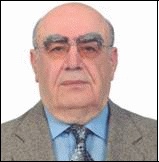 Professor Ahmet Akyurek is the Founder and President of Anatolian Development Foundation, based in Ankara, Turkey. Anatolian Development Foundation has been the implementing partner for UNHCR, the European Union, the World Bank and many other organizations. It has accumulated over 35 years’ experience of rural development in Eastern Anatolia, Turkey, as well as Balkan countries, Afghanistan, Iran, Chechnya, Pakistan and Iraq, focusing mainly on emergency aid, rehabilitation, reconstruction and development activities. Prof. Akyurek is the author of two books on NGOs and rural development issues.
Professor Ahmet Akyurek is the Founder and President of Anatolian Development Foundation, based in Ankara, Turkey. Anatolian Development Foundation has been the implementing partner for UNHCR, the European Union, the World Bank and many other organizations. It has accumulated over 35 years’ experience of rural development in Eastern Anatolia, Turkey, as well as Balkan countries, Afghanistan, Iran, Chechnya, Pakistan and Iraq, focusing mainly on emergency aid, rehabilitation, reconstruction and development activities. Prof. Akyurek is the author of two books on NGOs and rural development issues.
End of Tradition? Reconnecting British people back with Nature through OPAL
Maxwell Ayamba
Nature provides the umbilical cord linking humanity to 'Mother Earth', but in recent decades not only has the physical cord been severed, but the emotional, psychological and spiritual ones too. In Western countries such as Great Britain a new generation is growing up who for the most part cannot even recognize and identify the commonplace animals and plant species. The Open Air Laboratories (OPAL) aims to change this by creating and inspiring a new generation of nature-lovers, getting people to explore, study, enjoy and protect their local environment. OPAL network is an exciting new initiative that is open to anyone with an interest in nature in the UK, bringing scientists, amateur-experts, local interest groups and the public closer together. In 2007 OPAL received a grant of £11.75million from the Big Lottery Fund, developing a wide range of local and national programmes to encourage people from all backgrounds to get back in touch with nature. The project will also generate valuable scientific data concerning the state of Britain's environment. It is a partnership initiative celebrating biodiversity, environmental quality and people’s engagement with nature.
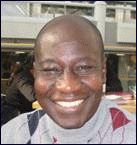 Maxwell A. Ayamba is an environment journalist by profession. Originally from Ghana in West Africa, Maxwell first arrived in the UK in 1996 after having been awarded a Commonwealth Media Development Fund scholarship to study Advanced Reporting in Journalism at the Thomson Foundation, Cardiff University. Maxwell is currently a Research Fellow at Sheffield Hallam University. He is also the policy and advocacy officer for the Sheffield Black and Ethnic Minority Environmental Network (SHEBEEN) and a member of the International Environment Forum. Maxwell has published a number of papers and has just started a PhD on "Active Citizenship, Ethnicity and the Environment". Having come from a rural background in Northern Ghana, Maxwell is passionate about the environment and empowering black and ethnic minority and deprived communities to get back to nature.
Maxwell A. Ayamba is an environment journalist by profession. Originally from Ghana in West Africa, Maxwell first arrived in the UK in 1996 after having been awarded a Commonwealth Media Development Fund scholarship to study Advanced Reporting in Journalism at the Thomson Foundation, Cardiff University. Maxwell is currently a Research Fellow at Sheffield Hallam University. He is also the policy and advocacy officer for the Sheffield Black and Ethnic Minority Environmental Network (SHEBEEN) and a member of the International Environment Forum. Maxwell has published a number of papers and has just started a PhD on "Active Citizenship, Ethnicity and the Environment". Having come from a rural background in Northern Ghana, Maxwell is passionate about the environment and empowering black and ethnic minority and deprived communities to get back to nature.
The MOWGLI Mentoring Scheme in Syria
Bernadette Devine
MOWGLI stands for: Mentoring – encouraging; Openness; Without prejudices; Giving without expectation of return; Learning that we find ourselves by losing ourselves in the service of others; Inspiring the best in those we work with. To be a successful business person you need the right balance of skills, knowledge and behaviours. MOWGLI mentoring concentrates on the behaviour. It is in essence a relationship and like all relationships they are richer for being a two way process. This richness emerges when both parties are communicating from a position of authenticity and humility. By doing so it allows us to connect at a deeply human level. A good mentor will hold a mirror up to their mentee, allowing them to see themselves as they are. The mirror will help the mentee discover that the gifts he has, which he takes for granted believing that everyone else shared them, are utterly unique to him. It is through a strong mentoring relationship that we discover our own identity.
SPECIALIST SESSION 4: ‘WE VALUE’ AND `EC-ASSESS’ TASTER SESSIONS
Interactive workshop: using ‘We Value’ for exploring and measuring values, and Earth Charter’s ‘EC-Assess’ system
In this workshop we will provide a taster session for participants to try out the ‘We Value’ web platform - guiding participants through the steps of creating a profile, selecting and personalizing appropriate values-based indicators, choosing suitable measurement methods, collecting data, and relating the results to values. We also present “EC-Assess”, an integrated assessment tool based on the ethical framework of the Earth Charter. This tool provides step-by-step guidance for the assessment of an individual’s lifestyle, an organization’s policies and practices, or a government’s laws and strategies. It measures both the subject’s level of declared commitment and level of performance in their actions, and will allow participants to identify opportunities for strategic change and growth.
FRIDAY 17 DECEMBER
09.05 – 10.40: Panel Session – Challenges and Progress in Using Values
New Developments in Understanding Values
Martin Kirk
Oxfam's interest in values grew out of the sober realisation that we will fail to tackle climate change, and overcome global poverty and suffering, with our current strategies. We simply don't have the tools or the understanding to face up to the scale of the threat, or the forces that are holding politicians and public alike from taking the sort of action we know is required. Over the last 12 months we have been working with colleagues from WWF and a host of other NGOs to understand better what constrains us all. We have come to understand how values are ordered and operate, and how they define the social and political space available for `bigger than self' issues. We have crafted an ambitious agenda, based on the idea of wide collaboration around values, to re-define the boundaries of debate and action at a national level. This agenda draws on the rich library of data on values, combines it with learning about cognitive frames, and sketches out a vision that has the potential to match the tools we have to the challenges we face. We are at the beginning of the journey. We need all the help we can get.
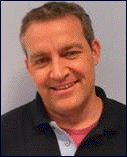 Martin Kirk is the Head of UK Campaigns for Oxfam, and has responsibility for all public campaigning and young people's work across England, Scotland and Wales. Before joining Oxfam, Martin was Head of Global Advocacy with Save the Children UK, where he was responsible for government and political lobby with national governments from the UK to Liberia to Japan, and with international bodies from the Security Council to the World Bank. A History graduate, Martin has previously worked on behaviour change models and strategies within the NHS and as a private consultant, as the chair of a national network of lobbyists for gay men's health, and as Parliamentary manager for the Terrence Higgins Trust. He is currently leading Oxfam's work on values and cognitive frames.
Martin Kirk is the Head of UK Campaigns for Oxfam, and has responsibility for all public campaigning and young people's work across England, Scotland and Wales. Before joining Oxfam, Martin was Head of Global Advocacy with Save the Children UK, where he was responsible for government and political lobby with national governments from the UK to Liberia to Japan, and with international bodies from the Security Council to the World Bank. A History graduate, Martin has previously worked on behaviour change models and strategies within the NHS and as a private consultant, as the chair of a national network of lobbyists for gay men's health, and as Parliamentary manager for the Terrence Higgins Trust. He is currently leading Oxfam's work on values and cognitive frames.
The ‘Good Governance for Medicines’ Programme
Dr Guitelle Baghdadi-Sabeti, World Health Organisation
Corruption negatively affects access and quality of health care. It endangers the health of entire communities, wastes resources and destroys public trust. To address this challenge, WHO has launched the `Good Governance for Medicines’ (GGM) Programme. Its goal is to contribute to health systems strengthening and to prevent corruption by promoting good governance in the pharmaceutical sector. The programme assists countries through a three‐step process of assessing their vulnerabilities to corruption, and developing and implementing specific programmes to maintain efficient health‐care systems. The willingness of governments to implement the GGM has exceeded initial expectations. Starting in 2004 as a pilot project in four Asian countries, the GGM now operates in 26 countries. Successes are already visible: medicine procurement practices have been enhanced, leading to lower costs for medicines; pharmaceutical services and information are publicly available on ministry of health web sites; management of conflicts of interest is implemented; and a culture of transparency is emerging. Momentum for change is increasing, and good governance is often a top priority item on the agendas of ministries of health.
 Dr. Guitelle Baghdadi-Sabeti has over 15 years experience in public health and development work. She has collaborated and provided country support to over 50 Ministries of Health, NGOs and development partners. She holds a Doctorate in Pharmacy from the University of Grenoble. She started her career in 1991 in Romania working with Pharmaciens Sans Frontières and joined WHO in 1994 where she worked in different locations and capacities. These include the WHO office at the United Nations in New York, WHO country office in Haiti and since 1998 she has worked at WHO Headquarters, Geneva, in the Department of Medicines Policy. In November 2004, she initiated and developed WHO's Good Governance for Medicines programme. She is the author or co-author of several WHO publications, including "Measuring Transparency in the Public Pharmaceutical Sector".
Dr. Guitelle Baghdadi-Sabeti has over 15 years experience in public health and development work. She has collaborated and provided country support to over 50 Ministries of Health, NGOs and development partners. She holds a Doctorate in Pharmacy from the University of Grenoble. She started her career in 1991 in Romania working with Pharmaciens Sans Frontières and joined WHO in 1994 where she worked in different locations and capacities. These include the WHO office at the United Nations in New York, WHO country office in Haiti and since 1998 she has worked at WHO Headquarters, Geneva, in the Department of Medicines Policy. In November 2004, she initiated and developed WHO's Good Governance for Medicines programme. She is the author or co-author of several WHO publications, including "Measuring Transparency in the Public Pharmaceutical Sector".
The Value of Design in a Sustainability Context
Professor Karen Blincoe
This presentation will address the value of design, the impact it has had on globalisation and development (both good and bad), and the impact that design will increasingly have on the transition to sustainability. I will discuss the challenges and the opportunities that this will bring.
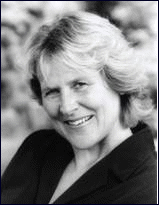 Professor Karen Blincoe is founder of the International Center for Creativity, Innovation and Sustainability (ICIS) in Denmark, which aims to educate creative professionals in the concept of radical, yet sustainable development and to assist them in implementing its principles within design, architecture, industry, business and policymaking. She is Visiting Professor in the Faculty of Design and Architecture at the University of Brighton, UK, and a former Director of Schumacher College, Dartington, UK, an educational institution dedicated to offering courses that relate to aspects of environmental and social sustainability. Blincoe has been elected Treasurer of the International Council of Graphic Design Associations. She was appointed head of department for Visual Communication at Danmarks Designskole, Copenhagen in 1991; has been a member of the Arts Council; is a Fellow of the CSD; and is a member of the Association of Danish Designers.
Professor Karen Blincoe is founder of the International Center for Creativity, Innovation and Sustainability (ICIS) in Denmark, which aims to educate creative professionals in the concept of radical, yet sustainable development and to assist them in implementing its principles within design, architecture, industry, business and policymaking. She is Visiting Professor in the Faculty of Design and Architecture at the University of Brighton, UK, and a former Director of Schumacher College, Dartington, UK, an educational institution dedicated to offering courses that relate to aspects of environmental and social sustainability. Blincoe has been elected Treasurer of the International Council of Graphic Design Associations. She was appointed head of department for Visual Communication at Danmarks Designskole, Copenhagen in 1991; has been a member of the Arts Council; is a Fellow of the CSD; and is a member of the Association of Danish Designers.
Measurement: Making Values a Normal Part of Projects and Organizations
Professor Arthur Dahl
The 'We Value' approach provides concepts and tools to make visible and develop the underlying values that contribute to project success and the effectiveness of human interactions in organizations. With further development, this opens wide possibilities to make progress more values-driven and to consciously manage for improvements at this level.
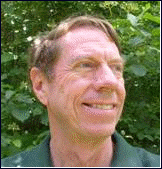 Professor Arthur Dahl is President of the International Environment Forum. He is a retired Deputy Assistant Executive Director of the United Nations Environment Programme (UNEP), and Senior Advisor to the UNEP/University of Geneva Programme of Advanced Studies in Environmental Diplomacy and to ESDinds, the EU-funded project on values-based indicators of education for sustainable development. He is a consultant to UNEP and other international organizations on indicators of sustainability, environmental assessment and observing strategies, coral reefs, biodiversity, islands, environmental education, and social and economic development. He has published many scientific papers and books including: "Island Directory", "Unless and Until: A Baha'i Focus on the Environment" and "The Eco Principle: Ecology and Economics in Symbiosis". He is a recently appointed Visiting Professor at the University of Brighton.
Professor Arthur Dahl is President of the International Environment Forum. He is a retired Deputy Assistant Executive Director of the United Nations Environment Programme (UNEP), and Senior Advisor to the UNEP/University of Geneva Programme of Advanced Studies in Environmental Diplomacy and to ESDinds, the EU-funded project on values-based indicators of education for sustainable development. He is a consultant to UNEP and other international organizations on indicators of sustainability, environmental assessment and observing strategies, coral reefs, biodiversity, islands, environmental education, and social and economic development. He has published many scientific papers and books including: "Island Directory", "Unless and Until: A Baha'i Focus on the Environment" and "The Eco Principle: Ecology and Economics in Symbiosis". He is a recently appointed Visiting Professor at the University of Brighton.
11.20 – 13.00: SUB-PLENARY SESSION 1
Building Values-Driven Organizations, Communities and Nations
Richard Barrett
This session will explore through recent case studies the tools, techniques and methodologies that have been used by the Barrett Values Centre (BVC) to support leaders in building values-driven organizations, communities and nations around the world. Richard will describe how BVC measures the consciousness of individuals and human group structures (organizations, communities and nations) by mapping the values to the seven levels of consciousness model. This session will also examine the need for a new leadership paradigm to support the global evolution of consciousness and the creation of a values-driven society.
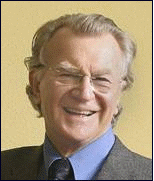 Richard Barrett is the Founder and Chairman of the Barrett Values Centre. He is an internationally recognized author, consultant and keynote speaker on values-based leadership and culture in business and society. He is a visiting lecturer at the `Consulting and Coaching for Change’ leadership course run jointly by HEC Executive Education at HEC Paris and Saïd Business School, University of Oxford. He is also an Adjunct Professor at Royal Roads University, Institute for Values-based Leadership. Barrett is the author of A Guide to Liberating Your Soul (1995), Liberating the Corporate Soul: Building a Visionary Organization (1998), Building a Values-Driven Organization: A Whole System Approach to Cultural Transformation (2006), and The New Leadership Paradigm (2011). He is a contributing author to Psychometrics in Coaching (2008) – Chapter 15: Coaching for Cultural Transformation.
Richard Barrett is the Founder and Chairman of the Barrett Values Centre. He is an internationally recognized author, consultant and keynote speaker on values-based leadership and culture in business and society. He is a visiting lecturer at the `Consulting and Coaching for Change’ leadership course run jointly by HEC Executive Education at HEC Paris and Saïd Business School, University of Oxford. He is also an Adjunct Professor at Royal Roads University, Institute for Values-based Leadership. Barrett is the author of A Guide to Liberating Your Soul (1995), Liberating the Corporate Soul: Building a Visionary Organization (1998), Building a Values-Driven Organization: A Whole System Approach to Cultural Transformation (2006), and The New Leadership Paradigm (2011). He is a contributing author to Psychometrics in Coaching (2008) – Chapter 15: Coaching for Cultural Transformation.
Healthy University-CSO Partnerships
Professor David Wolff
This presentation will give an overview of the Community University Partnership Programme (CUPP) at the University of Brighton, and summarise CUPP’s own learning about what constitutes a healthy partnership between universities and civil society organisations. We will refer to some of the specific characteristics of good practice.
 Professor David Wolff is Director of Community University Partnership Programme (CUPP), a University of Brighton initiative that creates mutually beneficial partnerships between the university and local communities. Prior to this David worked in the community and voluntary sector in the fields of homelessness, advice and information services; project management and in the use of IT. He has occupied roles as a service delivery worker, manager, director and consultant. He also teaches undergraduates learning in the community.
Professor David Wolff is Director of Community University Partnership Programme (CUPP), a University of Brighton initiative that creates mutually beneficial partnerships between the university and local communities. Prior to this David worked in the community and voluntary sector in the fields of homelessness, advice and information services; project management and in the use of IT. He has occupied roles as a service delivery worker, manager, director and consultant. He also teaches undergraduates learning in the community.
The Role of Values in Achieving a More Sustainable Development
David Chittenden
The concept of sustainable development is essentially an ethical value. This presentation will touch on the values that have contributed to our current unsustainability and will show why engaging with our values is essential to changing behavior towards more sustainable lifestyles. PERL’s approach to education for sustainable lifestyles will be shown along with some examples. We hope new measures and indicators can help in proving what works and in scaling up our efforts.
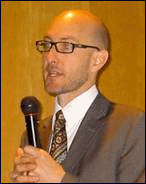 David Chittenden is the daily manager of PERL, The Partnership for Education and Research about Responsible Living (previously the Consumer Citizenship Network), coordinated from Hedmark University College in Norway. PERL is a network of educators, researchers and practitioners from over 100 institutions in more than 50 countries. In previous work, David evaluated the projects under the UN Marrakech Process Task Force on Sustainable Lifestyles led by Sweden. In his native New Zealand, he has a number of years experience as a sustainable development ‘generalist’ at the Ministry for the Environment covering policy and projects in urban design and development, sustainable building, housing policy, growth and innovation strategies, energy and energy efficiency, and climate change, as well as Private Secretary to the Minister on climate change issues. Originally an engineer by training, David specialised in sustainable development, system approaches, ecological economics, human needs and indicators.
David Chittenden is the daily manager of PERL, The Partnership for Education and Research about Responsible Living (previously the Consumer Citizenship Network), coordinated from Hedmark University College in Norway. PERL is a network of educators, researchers and practitioners from over 100 institutions in more than 50 countries. In previous work, David evaluated the projects under the UN Marrakech Process Task Force on Sustainable Lifestyles led by Sweden. In his native New Zealand, he has a number of years experience as a sustainable development ‘generalist’ at the Ministry for the Environment covering policy and projects in urban design and development, sustainable building, housing policy, growth and innovation strategies, energy and energy efficiency, and climate change, as well as Private Secretary to the Minister on climate change issues. Originally an engineer by training, David specialised in sustainable development, system approaches, ecological economics, human needs and indicators.
The Impacts of Using Values-Based Indicators in Projects Worldwide
Alicia Jimenez
In this talk, I will provide an overview of the involvement of the Earth Charter Initiative (ECI) as a CSO partner in the ESDinds project, a two-year project funded by the EU FP7 programme to develop and test values-based indicators. I will present a case study of using the indicators to evaluate ECI’s own ‘Earth Charter Global Learning Opportunity’ (e-GLO) online course. In addition, I will describe our vision of how values-based indicators could help organizations in our network, using examples from the University of Guanajuato and a Mexican non-governmental organization, Echeri Consultores.
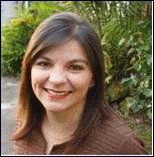 Alicia Jimenez has been working in conservation and sustainable development since graduating as a biologist from the University of Costa Rica in 1998. She worked for several years in IUCN Mesoamerica’s Regional Office and then started a professional services co-op called Coopesolidar, based in Costa Rica. She has an MSc in Resource Development from Michigan State University, USA, where she has worked at the Center for Latin American Studies. In 2006 she joined the Earth Charter International Secretariat, where she promotes the Earth Charter (especially in Africa, Middle East and Asia Pacific) and is involved with the Secretariat’s projects on education for sustainable development. Currently, she is IUCN CEC national activator for Costa Rica.
Alicia Jimenez has been working in conservation and sustainable development since graduating as a biologist from the University of Costa Rica in 1998. She worked for several years in IUCN Mesoamerica’s Regional Office and then started a professional services co-op called Coopesolidar, based in Costa Rica. She has an MSc in Resource Development from Michigan State University, USA, where she has worked at the Center for Latin American Studies. In 2006 she joined the Earth Charter International Secretariat, where she promotes the Earth Charter (especially in Africa, Middle East and Asia Pacific) and is involved with the Secretariat’s projects on education for sustainable development. Currently, she is IUCN CEC national activator for Costa Rica.
11.20 – 13.00: SUB-PLENARY SESSION 2
Partnership, engagement and participation - faith based communities and their engagement with the environment through long term plans
John Smith
In 2008, the Alliance of Religions and Conservation (ARC) and UNDP created a partnership to enable the major faith traditions world wide to develop long term plans for generational change for a living planet. In November 2009, thirty-one such plans were launched at Windsor Castle in the presence of the UN Secretary General and HRH Prince Philip (ARC's founder). The UN has described this as "potentially the largest civil society movement on climate change in the world" and in 2012 a further 30 to 40 such commitments will be launched. The model created to enable this is a process of self-examination and stock taking by the faith tradition which then leads to specific commitments to use their assets, resources, traditions, stories, teachings, festivals, land, investments, school networks and media to develop their own environmental programmes and to publicise not just what they do but as importantly, why. The focus on generational change emphasizes the fact that faiths think and operate in generations, not three or even five year plans.
John Smith has collaborated for many years with the Alliance of Religions and Conservation (ARC) and represented ARC in the ESDinds consortium. He is most recently involved in projects for urban agriculture.
European Union FP7 Opportunities for CSO Involvement in Research
Marie Harder (replacing Stephanie Remola)
The EU is encouraging Civil Society Organisations (CSOs) to be involved more in research, through several innovative and quite new funding mechanisms. This presentation will include an introduction to some of them, including the Mobilisation and Mutual Learning Actions plan from the SIS Work Programme, and opportunities for CSOs as research partners. Examples of past and current Calls of Funding will be shown which indicate the EU’s commitment to this theme. The EU report on Science in Society, (the MASIS report), and its relationship to CSOs, will be discussed.
The role of moral leadership in transformation for sustainability
Onno Vinkhuyzen and Sylvia Karlsson-Vinkhuyzen
The far-reaching transformations that society needs to go through -- for example in the field of how knowledge is generated, shared and applied by individuals and organizations, the type of values which are driving individual action and manifested in societal visions, and the norms and rules (institutions) which permeate society -- require a new type of leadership. This presentation explores the role of leadership for societal transformations towards sustainability.
First we briefly describe the nature of some of the transformations that are necessary to support sustainability. Then we outline some of the prevailing styles of leadership in society today and with examples of how these present obstacles transformation at various levels. In the second part we explore the potential value of the framework of moral leadership developed by Eloy Anello and others at Núr University, Santa Cruz, Bolivia and applied as basis for training in a number of successful social and economic development projects. Within this framework a person who is exhibiting moral leadership is committed to the values of social justice, equity and participation, sufficiently so as to inspire sustained efforts in the struggle for bringing about change, and is willing to assume the personal risks inherent in dealing with resistance to change. We look closer at some of the core elements of this framework including a number of capabilities that we consider of special value to support transformation towards sustainable development. Finally we briefly describe two large scale educational projects, in Ecuador and Kosovo, where the moral leadership framework has been applied and evaluated but without access to suitable value based indicators. We seek to gain insights from the work of the ESDinds project in identifying suitable indicators.
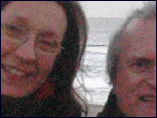 Onno Vinkhuyzen is a consultant in the computer software sphere, working primarily with large database development. In parallel he is developing and giving training in moral leadership for the business and NGO sector. For the past thirty years he has been engaged in community building efforts at the local and national levels as a chairman, secretary, and also in some other roles and in different organisations, like the refugee support organization of his municipality and currently the Board of the Inter-religious Council in the Netherlands. He received basic training in the field of moral development and leadership through the EBBF (European Bahá'í Business Forum) of which he is a member. Out of love for nature and creation in general he is also a member of the International Environment Forum.
Onno Vinkhuyzen is a consultant in the computer software sphere, working primarily with large database development. In parallel he is developing and giving training in moral leadership for the business and NGO sector. For the past thirty years he has been engaged in community building efforts at the local and national levels as a chairman, secretary, and also in some other roles and in different organisations, like the refugee support organization of his municipality and currently the Board of the Inter-religious Council in the Netherlands. He received basic training in the field of moral development and leadership through the EBBF (European Bahá'í Business Forum) of which he is a member. Out of love for nature and creation in general he is also a member of the International Environment Forum.
Sylvia Karlsson-Vinkhuyzen is a Visiting Research Fellow at the Department of Public International Law, Leiden University, the Netherlands. Dr. Karlsson-Vinkhuyzen’s major research has been in political science with emphasis on international relations and multi-level governance. She has a special interest in the interaction between knowledge, values and institutions. Her academic training started with an MSc in Biology/Ecotoxicology from Uppsala University, continued with a PhD (political science) from Linköping University and a post doc at Yale University. Dr. Karlsson-Vinkhuyzen was one of the lead authors of UNEP’s Fourth Global Environment Outlook assessment (2007). In parallel to her studies and research she has been actively engaged in the NGO processes of the Rio Conference in 1992, the World Summit for Social Development in 1995 and the World Summit on Sustainable Development in 2002 where she headed the delegation of the International Environment Forum (IEF), a scientific NGO accredited to the Summit. She also serves as the General Secretary of the IEF.
The Growing Importance of CSO Partnerships: Lessons from CREPE Project
Les Levidow
Entitled ‘Co-operative Research on Environmental Problems in Europe’ (CREPE), our FP7 project brought together CSOs and academics as partners to carry out research together. Our thematic focus was environmental issues of agricultural practices and innovations, in the context of EU policy for a Knowledge-Based Bio-Economy (KBBE). Evaluating such experiences, we have observed that CSOs often seek more active engagement to define research questions, rather than just being recipients of research results. Joint projects between CSOs and research organisations require investment from both sides in order to understand each other’s context, jargon and culture. Co-operative research encourages partnerships between researchers and non-researchers on issues of common interest, and although those categories imply fixed roles, the distinction between researcher and non-researcher can be fluid: CSOs often carry out research, even if not formally recognised as such. For working with CSOs, academics may need to develop more diverse capacities and roles than in conventional research.
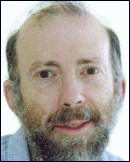 Les Levidow is a Senior Research Fellow at the Open University, UK, where he has been studying agri-environmental issues since the late 1980s. A long-running case study has been the agbiotech controversy, focusing on the European Union, USA and their trade conflicts. This research was summarised in his book, GM Food on Trial: Testing European Democracy (Routledge, 2010). His research now encompasses a broader range of issues, e.g. alternative agro-food networks, agricultural innovation priorities and biofuels. Most recently he coordinated an FP7 project, ‘Co-operative Research on Environmental Problems in Europe’ (CREPE) and was a partner in another, ‘Facilitating Alternative Agro-food Networks (FAAN)’. Funded by FP7, both projects involved Civil Society Organisations as partners.
Les Levidow is a Senior Research Fellow at the Open University, UK, where he has been studying agri-environmental issues since the late 1980s. A long-running case study has been the agbiotech controversy, focusing on the European Union, USA and their trade conflicts. This research was summarised in his book, GM Food on Trial: Testing European Democracy (Routledge, 2010). His research now encompasses a broader range of issues, e.g. alternative agro-food networks, agricultural innovation priorities and biofuels. Most recently he coordinated an FP7 project, ‘Co-operative Research on Environmental Problems in Europe’ (CREPE) and was a partner in another, ‘Facilitating Alternative Agro-food Networks (FAAN)’. Funded by FP7, both projects involved Civil Society Organisations as partners.
SPECIALIST SESSION 5: MONITORING AND EVALUATION
Social Return on Investment used in Tower Hamlets
Karina Berzins
This talk will be about an evaluation of an employment programme ‘Work it Out’ which is run jointly by Tower Hamlets Council and the local PCT. The evaluators used the ‘Social Return on Investment’ methodology in the assessment. SROI is a methodology that is endorsed by the Cabinet Office; it gives value and recognition to vital soft outcomes that are usually not able to be assessed and thus are invisible to most assessments and reviews. The Cabinet Office report states that SROI “seeks to reduce inequality and environmental degradation, and improve wellbeing by incorporating social, environmental and economic costs and benefits”. The purpose of my talk is to explain how this methodology works in detail, with reference to the work undertaken in Tower Hamlets and demonstrate its applicability to evaluations in a wide range of areas.
Karina Berzins is a highly experienced research consultant working in the field of Regeneration, via applied research around: health, education and Arts and Cultural access. She is currently a Senior Research Fellow with Continuum: the Centre for Widening Participation Policy Studies, as well as a Visiting Fellow with the London East Research Institute at the University of East London. She is also trained in the Social Return on Investment (SROI) evaluation model by the SROI UK network, which is endorsed by the Cabinet Office. Previous work includes: research for the Well London project including in depth community consultation and community development; ongoing evaluation work for Tower Hamlets PCT around employability; Principal investigator for the economic impact report of the Cultural Olympiad events for the Five Olympic Boroughs; and research in Barking and Dagenham around young people’s educational choices in the borough.
Validity Checks of ‘We Value’
Martin Zahradník
The “We Value” approach is not intended to be a common research design with universal value theory and its operationalisation, with common research method and assessment tool. Various research designs, operationalisations and specific assessment tools are involved, due to its collaborative character and localisation in various environments and organisations. Therefore, the research criteria, such as validity, reliability, relevance, etc. have to be repeatedly tested to ensure that we know what we are measuring and that we control the risks of misinterpretation of our results. This presentation will demonstrate examples of actual measurements of values-based indicators, with respect to the fulfilment of research criteria. A summary of the research team’s experience, with recommendations for further research, will also be provided.
 Martin Zahradník is currently pursuing his PhD studies in the Faculty of Social Sciences at Charles University, Prague. The postgraduate course is devoted to the conditions for individual freedom of behaviour and for a free society. He has been an employee of the Charles University Environment Center since 2005, initially as a project manager and then as a participant in international e-learning projects and the Virtual Campus for Sustainable Europe and Practicing Sustainable Development through E-Learning, which focus on education for sustainable development and its evaluation. Since 2008 he has been researching this topic in two research projects: E-V-Learn and ESDinds (the EU-funded project that created We Value). He occasionally teaches environmental sociology topics at the Philosophical Faculty and at the Faculty of Humanities of the Charles University Prague.
Martin Zahradník is currently pursuing his PhD studies in the Faculty of Social Sciences at Charles University, Prague. The postgraduate course is devoted to the conditions for individual freedom of behaviour and for a free society. He has been an employee of the Charles University Environment Center since 2005, initially as a project manager and then as a participant in international e-learning projects and the Virtual Campus for Sustainable Europe and Practicing Sustainable Development through E-Learning, which focus on education for sustainable development and its evaluation. Since 2008 he has been researching this topic in two research projects: E-V-Learn and ESDinds (the EU-funded project that created We Value). He occasionally teaches environmental sociology topics at the Philosophical Faculty and at the Faculty of Humanities of the Charles University Prague.
Peace Child International’s Youth-led Monitoring and Evaluation Hub
David Woollcombe
Peace Child International (PCI) coined the term Youth-led Development (YLD) at its 1st World Youth Congress on Youth and Development in 1999. It refers to projects and initiatives devised and implemented by young people under the age of 25 to 30. Although the concept of YLD has secured increasing interest among the development community, most donors remain reluctant to commit large funds to the field because, they argue, young people are not accountable and often fail to deliver effective monitoring and evaluation of their projects. Through the Youth Hub, we aim to gather the knowledge and evidence from the field to improve current approaches to monitoring and evaluation done by youth. The Youth Hub will offer PCI’s expertise in the form of a project management resource portal and online social network for young people seeking professional guidance for their initiatives using the following strategies: training and mentoring; measuring concrete project and learning outcomes; a cross-sectoral approach; longitudinal impact measurement; online implementation through social networking and state-of-the-art IT technology (data delivery via cell phones, automatic SMS deadline reminders, etc).
David Woollcombe is President of Peace Child International, an educational charity with more than 1,500 affiliate groups and networks in over 180 countries. The mission of PCI is to empower young people to ‘be the change that they want to see in the world’, by supporting them to produce books, educational materials, workshops and training courses on their major generational challenges: climate change, peace, human rights, poverty and sustainable development. David is also a Director of BOND.
Measuring Social Impact
Simon Northmore
The development of systematic metrics that capture the outcome or impact of public, community and civic engagement activities by HEIs presents an enormous challenge both at a practical and theoretical level. Cupp has been in the forefront of work to develop a systematic approach to auditing, benchmarking and evaluating public, community and civic engagement. However, our experience has confirmed that there is a need to develop indicators at the individual project level that present an easily comprehensible metric of the value generated by university-community engagement activities. This workshop will present Cupp’s approach to describing the outcomes of university-community engagement, based on six university community partnerships it currently supports, together with the Universities of Sussex and Chichester, as part of the South East Coastal Communities Project.
 Simon Northmore works with the University of Brighton’s Community University Partnership Programme (CUPP) as Development Manager for the South East Coastal Communities Project. He has extensive experience of working in the voluntary and community sector at local, regional and national level as well as teaching in higher education. Prior to joining CUPP in 2008, he was Practice Development and Research Manager at Age Concern England.
Simon Northmore works with the University of Brighton’s Community University Partnership Programme (CUPP) as Development Manager for the South East Coastal Communities Project. He has extensive experience of working in the voluntary and community sector at local, regional and national level as well as teaching in higher education. Prior to joining CUPP in 2008, he was Practice Development and Research Manager at Age Concern England.
Expecting the Unexpected: Unplanned Behaviour Change as an Indication of Empowerment
Andrew Bartlett
What is empowerment? Can it be measured? If so, how and by whom? This short talk attempts to answer these questions, drawing on the experience of agricultural projects in Asia. We will start with a distinction between intrinsic and instrumental empowerment. A typology of methods will then be considered, with examples of behavioural indicators used with women in Bangladesh and case studies produce by farmers in Indonesia. As a final example, we will look at some unplanned changes in farmer behaviour in Laos, and asks if we should be ‘expecting the unexpected’.
 Andrew Bartlett has spent almost 30 years working for development programmes in Asia funded by the UN, the World Bank and a number of NGOs. Working mostly in the agriculture sector, with a focus on human resources development and organisational development, he has planned and managed projects, carried out training and evaluation assignments, and engaged in a wide-range of advocacy activities. Farmer empowerment, food sovereignty, and agro-ecology are at the centre of his interests. After living in Thailand, Pakistan, the Philippines, Vietnam, Indonesia and Laos… he has recently returned to the UK.
Andrew Bartlett has spent almost 30 years working for development programmes in Asia funded by the UN, the World Bank and a number of NGOs. Working mostly in the agriculture sector, with a focus on human resources development and organisational development, he has planned and managed projects, carried out training and evaluation assignments, and engaged in a wide-range of advocacy activities. Farmer empowerment, food sovereignty, and agro-ecology are at the centre of his interests. After living in Thailand, Pakistan, the Philippines, Vietnam, Indonesia and Laos… he has recently returned to the UK.
SPECIALIST SESSION 6: VALUES IN BUSINESS
AtKisson Inc. and the COMPASS Framework for Sustainability
Michael Lunn
Using several personal case studies from cities and regions in Australia, Michael Lunn will present the Compass framework for indicators that AtKisson Inc. has used for a decade, with excellent results in communities, schools, and corporations. Compass is the tool for managing indicators and assessment, and the stakeholders who need them. `North, East, South, West’ become the memorable `Nature, Economy, Society, Wellbeing’ - sustainability’s compass. The process involves intensive multi-stakeholder dialogue, where values negotiation and learning to "speak each other's language" often plays a crucial role.
Michael Lunn is speaking on behalf of AtKisson Inc. - the hub company for an international network of affiliated organizations and individual associates, around the world, called the AtKisson Group. The Group has developed a set of proven tools and methods for advancing sustainability, which have now been brought together into the ISIS Accelerator toolkit. Development of the ISIS Accelerator, and an international certification and affiliate program launched in 2002, have made possible the spread of AtKisson Inc. tools and methods to other professionals, as well as to other countries and cultures. Alan AtKisson’s book, "The Sustainability Transformation", which covers the theory and some case studies in detail, has just been published in paperback by Earthscan.
Experiences with WE VALUE Values-Based Indicators in Business Contexts
Serge Thill
This presentation will examine different ways in which the `WE VALUE’ concept of measuring values-based indicators might be extended from CSOs to business organizations. It addresses fundamental questions such as the place that values have in business today, and what businesses are seeking to achieve through values work, as well as more practical aspects of working with values in a business context. Finally, ways of securing the long-term effects of a values project in a business organization will be discussed.
 Through his experience as a member of senior management teams and board member of industrial, financial and real estate companies and NGOs In Luxembourg, Italy and the USA, Serge Thill has gained deep awareness of the strategic questions, of the structural choices and collaborative issues that today's organizations face, and of the long-term strategic importance of the social responsibility of business activities, diversity, balance of the feminine and the masculine, and trust. Holding an MBA from the Open University Business School (2001), member of the European Baha'i Business Forum, Serge is also a CSR expert accredited by INDR (www.indr.lu), a certified "Cultural Transformation Tools®" consultant and an experienced executive coach.
Through his experience as a member of senior management teams and board member of industrial, financial and real estate companies and NGOs In Luxembourg, Italy and the USA, Serge Thill has gained deep awareness of the strategic questions, of the structural choices and collaborative issues that today's organizations face, and of the long-term strategic importance of the social responsibility of business activities, diversity, balance of the feminine and the masculine, and trust. Holding an MBA from the Open University Business School (2001), member of the European Baha'i Business Forum, Serge is also a CSR expert accredited by INDR (www.indr.lu), a certified "Cultural Transformation Tools®" consultant and an experienced executive coach.
Illuminating Values Systems: Introducing Values Technology
Sara Wolcott and Leonard Joy
Increasing recognition of the importance of values has led to a diverse range of definitions, uses and tools to measure values, all of which are useful. We introduce the Hall Tonna Values Technology as a useful conceptual framework and practical tool for measuring values successfully used in organisations from faith groups to businesses. We also consider the importance of a developmental perspective in working with values, and consider some of the important practical and ethical concerns for working with values, whichever system one uses.
 Sara J. Wolcott has worked as a change-instigator for sustainable development for over six years. She is currently a consultant creating tools for assessing and developing organisations’ theories of change. She worked with the Institute of Development Studies at the University of Sussex on 'ReImagining Development', poverty impacts of the financial crisis, trend-spotting and understanding societal responses to the financial crisis and climate change. Prior to coming to the UK, she was certified with Values Technology Inc in the practical use of the Hall-Tonna Values Development model, and has contributed to the theoretical and societal implications of this model. She has helped launch six start-ups and several coalitions and projects, including the Quaker Institute for the Future. She is keen to create a strong collaborative action-research partnership around values.
Sara J. Wolcott has worked as a change-instigator for sustainable development for over six years. She is currently a consultant creating tools for assessing and developing organisations’ theories of change. She worked with the Institute of Development Studies at the University of Sussex on 'ReImagining Development', poverty impacts of the financial crisis, trend-spotting and understanding societal responses to the financial crisis and climate change. Prior to coming to the UK, she was certified with Values Technology Inc in the practical use of the Hall-Tonna Values Development model, and has contributed to the theoretical and societal implications of this model. She has helped launch six start-ups and several coalitions and projects, including the Quaker Institute for the Future. She is keen to create a strong collaborative action-research partnership around values.
 Leonard Joy has taught development economics at Makerere University (Uganda), Cambridge University, London School of Economics, and the University of California, Berkeley. He is currently a Visiting Fellow at the Institute of Development Studies at the University of Sussex, of which he was the founding Deputy Director. He has done extensive consulting in the UN system, including UNDP, UNICEF, World Bank, IMF and UNFAO, around governance, nutrition, leadership, process consultation, and planning. From 2006, he focused on enabling societal development through values development. This included founding the Quaker Institute for the Future and helped shape the Moral Economy Project and extensive work with Dr Brian Hall of Values Technology. He recently authored `Our Values will Determine Our Future’, currently in press. He is concerned to further the process of systemic self-reflection within organisations, and research and practice into values development at an international level.
Leonard Joy has taught development economics at Makerere University (Uganda), Cambridge University, London School of Economics, and the University of California, Berkeley. He is currently a Visiting Fellow at the Institute of Development Studies at the University of Sussex, of which he was the founding Deputy Director. He has done extensive consulting in the UN system, including UNDP, UNICEF, World Bank, IMF and UNFAO, around governance, nutrition, leadership, process consultation, and planning. From 2006, he focused on enabling societal development through values development. This included founding the Quaker Institute for the Future and helped shape the Moral Economy Project and extensive work with Dr Brian Hall of Values Technology. He recently authored `Our Values will Determine Our Future’, currently in press. He is concerned to further the process of systemic self-reflection within organisations, and research and practice into values development at an international level.
Values and Behaviour in Organisations Under Stress
Jackie Le Fèvre
In this talk, I will illustrate how an appreciation of world view types and dominant values can be used to understand behaviour in organisations under stress, e.g. in merger situations or whole-organisation culture change programmes. I will discuss what this means for shaping the approach taken by anyone in the organisational development/facilitator role, using the Minessence Values System as a framework.
See bio and photograph above.
SPECIALIST SESSION 7: CO-INCEPTION, CO-DESIGN, CO-PRODUCTION
Design for Social Learning: Transformative Learning Theory and Practice
Jody Boehnert
Within design there is a recognition that social innovation is needed to meet challenges associated with sustainability. Meanwhile, educators have developed powerful pedagogic practices such as 'transformative learning' (TL). TL was used within the women's movement in the 1970s to help transform women's understanding of the political and social conventions that worked against their liberation. I will present transformative learning as a practice which can addresses values within sustainability education and explain how and why this works. I will also explain how design can facilitate this process (using examples from my research). In this presentation, I will include examples of how I have attempted to measure values through testing students’ familiarity with key ecological concepts.
Jody Boehnert is a PhD student in the Faculty of Arts at the University of Brighton, and is starting her third year of research on 'The Visual Communication of Ecological Literacy' with Jonathan Chapman and Julie Doyle. The focus of her work is visualizing ecological literacy, and she is heavily engaged with issues around critical eco-pedagogy and sustainable education. Jody is also developing communications and learning tools responding to the 'Identity Campaigning' theme of the WWF and their latest report 'Common Cause'.
Co-Design in Action
Nick Gant
In this talk, I will present a range of active co-design projects that explore different value systems and collaborative methodologies for sustainable development. These include 'open-sourcing' ideas, socially networked community led planning and building physical 'totems' as a means to facilitate more resilient products and communities. Within each project, I will identify 'indicators' of non-financial benefits and values, and demonstrate the value of collaboration in the design process.
Nick Gant is Principal Lecturer in Design at the University of Brighton, co-director of the Inheritable Futures Laboratory (IF:Lab), sustainable design research group, and co-founder of acclaimed design consultancy BoBo Design Ltd. He is an award winning, practicing industrial designer and researcher who has worked with global material manufacturers such as ICI, Lucite International, Perspex, Ineos and Eastman, as well as individuals and global, branded organizations as diverse as Vivienne Westwood, Apple, The Beatles, Dyson, Vodafone, Absolut Vodka, Fender Guitars, Philips, The V&A and Natural History Museums, 100% Design and the BBC. Nick’s work has been disseminated in numerous international exhibitions, books and journals. His current projects explore material and digital as means to mediate sustainability and as models for 'ecologies of scale'.
The Need for Better Design of Research Projects with CSO Partners
Marie Harder
The traditional approach is that research should start with specialists, who can ‘pick up’ non-academic matters, assuming that all topics can be researched successfully from their R&D base platform. Civil Society Organizations are usually treated mostly as 'Objects of Study' that can in some cases help at specific points of research design and implementation. With a full partnership with and often leadership from CSOs, previously uncharted community knowledge becomes accessible to researchers, and the end result is directly and immediately useful. Overall, a complex problem is now considered from a new (co-developed) point of view, and this new point of view is partly owned by society, and resides there as well as with researchers. A new Community of Interest is formed with a shared vocabulary, ready to move forward together. Healthy shifts can occur in the research approach developed. CSO involvement shifts the research to new ground away from any traditional academic base. The CSO approach does not respect academic disciplinary boundaries, forcing different academics to work together. Instead of using established research tools, the CSO focus forces hybridisation of wide range of tools and the development of new ones.
See bio and photo above.
SPECIALIST SESSION 8: PARTNERSHIPS
Healthy University-CSO Partnerships
Professor David Wolff
Deeper exploration of themes discussed in the sub-plenary overview. See bio and photo above.
Partnerships in `We Value’
Gemma Burford
In reflecting on the nature of `participation’ in research or evaluation processes, two separate dimensions can be considered: the breadth of participation (the number and diversity of people involved), and the depth (the extent of their ownership and control over decision-making). Recent research has shown that the people who gain most benefit from a project evaluation are those who participate most deeply, i.e. those with the greatest control over decision-making processes. In this talk, I will discuss the `We Value’ project to develop values-based indicators, focusing on how effective partnerships were established and maintained between university-based research groups and CSOs. The structure of the project, which granted full control to the CSO partners, ensured that all the research remained relevant to CSO needs and priorities. The result was sustainable benefits for the CSO partners.
 Gemma Burford is Research Officer in Sustainable Development at the University of Brighton. Her work with the EU-funded ESDinds Project has focused on creating content for the WE VALUE web platform, and conducting research on partnerships and participation within the project. Before joining the ESDinds/WE VALUE team, Gemma worked in Tanzania as Founder and Co-Director of the NGO Aang Serian (‘House of Peace’), which promotes values-based intercultural education, collaborative research and indigenous knowledge. She is a Trustee of the Global Initiative for Traditional Systems of Health; a co-editor of the World Health Organization Global Atlas of Traditional, Complementary and Alternative Medicine; and a (co-)author of several peer-reviewed publications in health, environment, gender and development fields.
Gemma Burford is Research Officer in Sustainable Development at the University of Brighton. Her work with the EU-funded ESDinds Project has focused on creating content for the WE VALUE web platform, and conducting research on partnerships and participation within the project. Before joining the ESDinds/WE VALUE team, Gemma worked in Tanzania as Founder and Co-Director of the NGO Aang Serian (‘House of Peace’), which promotes values-based intercultural education, collaborative research and indigenous knowledge. She is a Trustee of the Global Initiative for Traditional Systems of Health; a co-editor of the World Health Organization Global Atlas of Traditional, Complementary and Alternative Medicine; and a (co-)author of several peer-reviewed publications in health, environment, gender and development fields.
SATURDAY 18 DECEMBER
Panel Session: Challenges and Progress in Using Values
Beyond GDP Growth: Using Values to enable and measure Societal Development?
Sara Wolcott
The values driving global 'growth' are not the values needed to survive global warming. Can values become the way we measure and indicate what really matters on a societal level, as well as for individuals and organisations? Indeed, can we really create sustainability without doing so? This talk reflects on what have we learned during the past few days about the values, indicators and measurements needed to enable real social-environmental development. It considers some of what is needed to enable values-indicators for values development to be used as key indicators of societal development.
See bio and photograph above.
Brighton and Hove’s response to the changing UK policy context: Intelligent Commissioning, co-production and developing new measures of success
Dr Paula Black
The broad policy context for delivering public services in the UK has changed significantly in the past two years. Some of the key issues are:
-
The new Coalition Government
-
The economic downturn
-
Planned cuts to public spending
-
Increased partnership working across the public, private and third sectors
-
Abolition of Primary Care Trusts and the introduction of GP commissioning
-
The localism agenda
-
Moves to broaden democratic engagement and participation
Brighton and Hove has responded to these issues in part by moving towards an Intelligent Commissioning method of public service delivery. I will outline what Intelligent Commissioning is and what it means for the city. I will then go on to look at the potential this creates for co-design and co-production within the commissioning cycle. Finally, I will outline how new measures are being created to understand our progress towards achieving priority outcomes across Brighton and Hove.
 Dr Paula Black is the Head of Analysis and Performance at Brighton and Hove City Council. Her role involves providing a shared evidence base across the city for use in decision-making and implementing a new performance management framework to support city-wide Intelligent Commissioning. She has worked in Local Government for the past three years. Before this she was an academic and taught Sociology at the Universities of Manchester, Derby and Sussex in the UK. She has published in the areas of health; social class; gender; and the sociology of the body. She has also worked as a consultant for the public and private sectors and was the co-ordinator for Brighton and Hove's City Employment and Skills Plan.
Dr Paula Black is the Head of Analysis and Performance at Brighton and Hove City Council. Her role involves providing a shared evidence base across the city for use in decision-making and implementing a new performance management framework to support city-wide Intelligent Commissioning. She has worked in Local Government for the past three years. Before this she was an academic and taught Sociology at the Universities of Manchester, Derby and Sussex in the UK. She has published in the areas of health; social class; gender; and the sociology of the body. She has also worked as a consultant for the public and private sectors and was the co-ordinator for Brighton and Hove's City Employment and Skills Plan.
‘Effective’ versus ‘Successful’ CSO Projects
Marilyn Mehlmann
A successful project is easy to identify, not only in civil society but in any sphere: it meets its objectives. This assumes that there are indeed clear, measurable objectives, but let us take that as read. However this is not to say that even a successful project is necessarily effective. There are many possible reasons why the objectives may not lead us to be effective: this presentation will address four of them, all related to values, and will provide examples.
 Marilyn Mehlmann has been engaged in questions of behaviour and sustainability since the mid 1980s, since 1994 as General Secretary of Global Action Plan (GAP) International. She is responsible for GAP’s ongoing program of action research to identify, develop and improve methods and tools for effective sustainable behaviour change. Mehlmann is a Member of the Advisory Boards of People-Centered Development Forum, Seattle, and of Gaia University, Germany and Mexico. She has created new fora for personal and professional development, including a coaching 'master class' currently offered in four countries. She was previously involved with product development at IBM, and with action research at the Swedish Centre for Working Life.
Marilyn Mehlmann has been engaged in questions of behaviour and sustainability since the mid 1980s, since 1994 as General Secretary of Global Action Plan (GAP) International. She is responsible for GAP’s ongoing program of action research to identify, develop and improve methods and tools for effective sustainable behaviour change. Mehlmann is a Member of the Advisory Boards of People-Centered Development Forum, Seattle, and of Gaia University, Germany and Mexico. She has created new fora for personal and professional development, including a coaching 'master class' currently offered in four countries. She was previously involved with product development at IBM, and with action research at the Swedish Centre for Working Life.
Education and Lifestyles: Policy Processes, Values and Indicators
David Chittenden
Governmental policy has an important role to play in a transition to a more sustainable world. International policy processes are also important for establishing global norms which can then be implemented in national and local settings. This presentation will discuss the relationship between values and making policy, as well as how policy is often made and measured, with reference to education and lifestyles. It will also show some of the international policy processes that PERL is involved in (such as the Marrakech Process on Sustainable Consumption and Production, the UN Commission on Sustainable Development, the UN Decade of Education for Sustainable Development and ISO 26000 on Social Responsibility) and highlight some of the values involved.
See bio and photograph above.
The Future of the Global Economy
Professor Augusto Lopez-Claros, EFD Global Consulting Network
What are some of the longer-term challenges posed by the latest global financial crisis and what are some of the difficult choices which governments, businesses and civil society will confront in coming years in our search for a more equitable and sustainable economy?
 Professor Augusto Lopez-Claros, former Chief Economist and Director of the Global Competitiveness Program at the World Economic Forum in Geneva, is the founder of EFD – Global Consulting Network and Project Director for the Humanitarian Response Index. He has worked as Executive Director and Senior International Economist at Lehman Brothers International (London); as an economist with the International Monetary Fund; and as Professor of Economics at the University of Chile. Lopez-Claros holds a PhD in Economics from Duke University, United States, and has written and lectured extensively on a wide range of topics. His interests include interdependence and cooperation in the emergence of global institutions, the role of good governance in economic development, and aspects of management of the globalization process.
Professor Augusto Lopez-Claros, former Chief Economist and Director of the Global Competitiveness Program at the World Economic Forum in Geneva, is the founder of EFD – Global Consulting Network and Project Director for the Humanitarian Response Index. He has worked as Executive Director and Senior International Economist at Lehman Brothers International (London); as an economist with the International Monetary Fund; and as Professor of Economics at the University of Chile. Lopez-Claros holds a PhD in Economics from Duke University, United States, and has written and lectured extensively on a wide range of topics. His interests include interdependence and cooperation in the emergence of global institutions, the role of good governance in economic development, and aspects of management of the globalization process.

